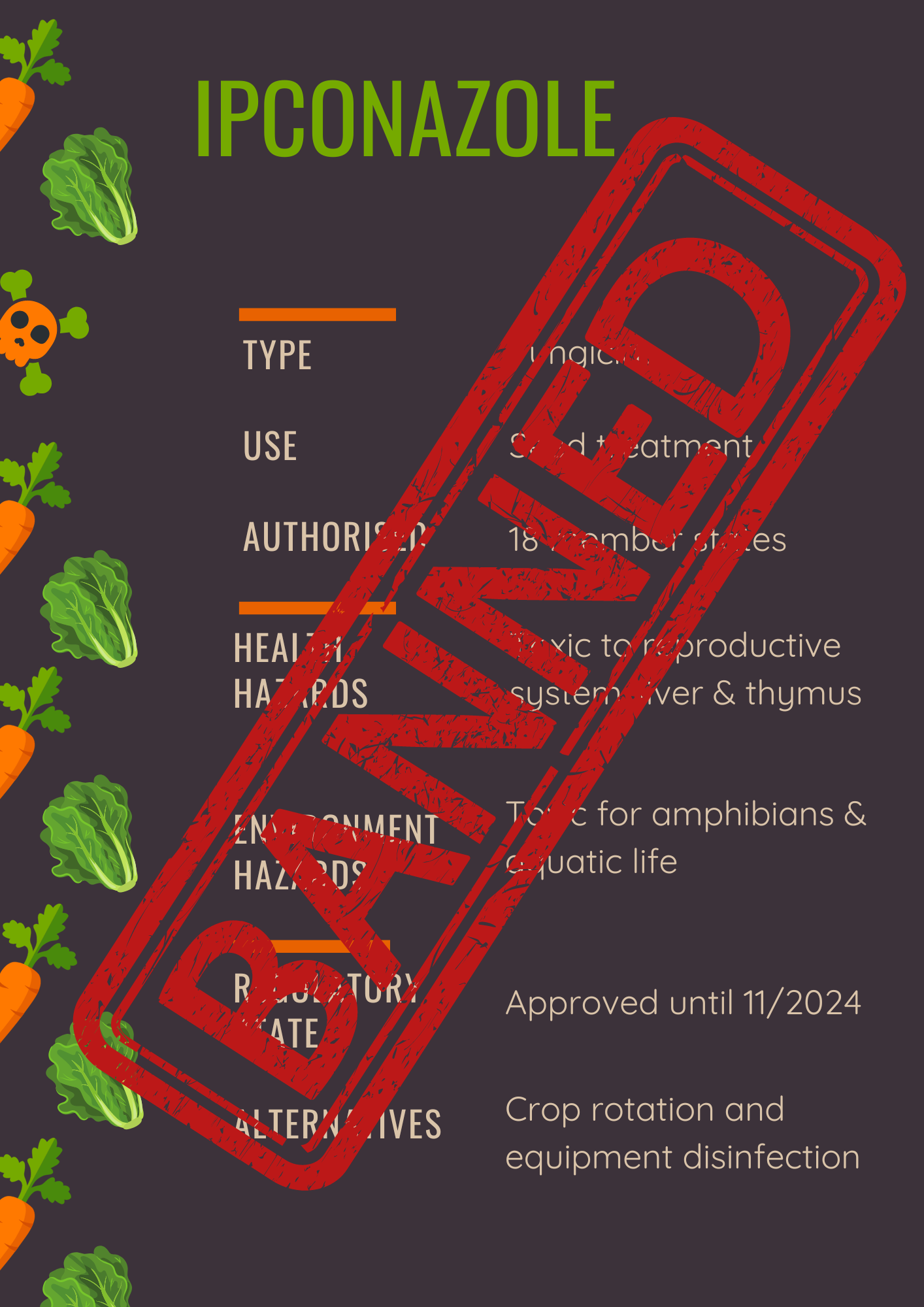Type: Fungicide
Health Hazards: Toxic to the reproductive system: clear evidence connected to malformations in offspring (Classified “R1B”). Adverse health risks were also connected to effects on the liver, and the thymus gland, impacting the immune system.
Environmental Hazards: High risk to non-target terrestrial vertebrates and other non-target terrestrial organisms. Poses long-term risks to small granivorous birds. Classified as very toxic to aquatic life with acute and long-lasting effects. Ipconazole exhibited high to very high persistence in soil and lasting metabolites.
Exposure: Authorised in 18 member states.
Regulatory state of play: Originally approved until 30/11/2024. Banned in the EU from 1.1.2024 because of it's high toxicity.
Use: Applied as a seed treatment before planting outdoors, on a wide range of crops, including root and leafy vegetables, e.g., beet, carrot, radish, celery, fennel, lettuce, spinach, broccoli, cabbage and kale.
